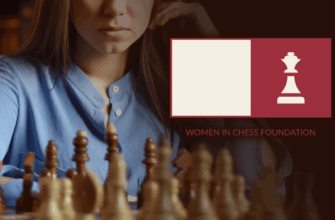In the grand, neoclassical embrace of the Hungarian National Gallery, an extraordinary convergence unfolded recently: the 11th Judit Polgar`s Global Chess Festival. Far from a mere tournament, this annual spectacle, championed by the legendary Judit Polgar herself, reimagined the ancient game as a dynamic, forward-looking force. It was a vivid testament to chess`s enduring power to connect, educate, and inspire, drawing thousands into its orbit with a clear, resonant motto: play, inspire, experience.
Where Innovation Meets Inspiration: The Festival`s Pulse
The festival wasn`t just about moving pieces on a 64-square board; it was about moving boundaries. This year, the spirit of innovation was palpable, perhaps best exemplified by the debut of RubikChess. Picture this: fifty young mixed pairs, combining the geometric challenge of the Rubik`s Cube with strategic chess play. The concept, seemingly whimsical, was a resounding success, underscoring the festival`s commitment to fresh perspectives and the FIDE Commission for Women`s Chess`s mission to foster gender equality and teamwork. Here, talent truly knew no gender, and collaboration became the ultimate superpower.
Young minds engaged in the innovative RubikChess competition, a highlight of the festival.
Beyond mixed-gender teams, the festival showcased a deeper commitment to diversity and inclusion. The “Queen`s Trap,” an audiovisual project by Chilean artist Juga, developed in cooperation with the Commission, was a powerful celebration of women`s strength and creativity within the chess world. It served as a reminder that the game`s intellectual battleground is enriched by all voices and perspectives.
The Future is Now: AI, Robots, and Digital Frontiers
For many, the true spectacle lay in the festival`s audacious embrace of technology. Imagine a chess piece gliding across the board, seemingly on its own accord – that’s the magic of the GoChess board. Or, perhaps more thrillingly, consider the world’s first AI-powered chess robot, capable of manipulating real pieces. It`s enough to give even the most seasoned Grandmaster a moment of contemplative pause: are we training our eventual overlords, or simply creating fascinating new opponents? The festival didn’t shy away from these questions, instead presenting a captivating human-robot match where young Hungarian talent Gellért Karácsonyi bravely faced the SenseRobot.
The human-robot chess match drew significant attention, showcasing the evolving landscape of chess.
Judit Polgar, the driving force behind this grand assembly, articulated her vision with characteristic clarity:
“Chess connects. It connects different generations, different cultures, different abilities, different talents, different ways of thinking… Our festival is not just about the game, but about a shared experience that enriches lives.”
A Tapestry of Experiences: Art, Strategy, and Community
The festival’s unique setting in the Hungarian National Gallery wasn`t accidental. It underscored the belief that chess is, at its heart, an art form. Visitors were treated to thematic guided tours that masterfully wove together the worlds of art and chess. On the Morgan Stanley stage, the “Invisible Chess Game” saw Judit Polgar and Olympic silver medallist Peter Ács engaging with a visual installation board, transforming the cerebral into the spectacular.
The festival also kept a firm foot in the traditional competitive arena. The “Play on the Square” tournament brought out serious competitors, while “Let’s Chess!” workshops, led by International Master Ármin Juhász, honed strategic thinking. For the daring, “Challenge the Master!” offered a rare opportunity to test wits against renowned players, perhaps with a cheeky hope of delivering an unexpected checkmate.
Online, the global reach of the festival was amplified. Judit Polgar’s “Community Simul” saw her play simultaneously against teams from around the world, including digital learning platforms and even a group led by a former world chessboxing champion. It was a digital testament to chess`s truly universal appeal, broadcasting the festival’s vibrant energy to hundreds of thousands.
Judit Polgar`s Enduring Legacy: Chess for the World
Since its inception in 2015, the Judit Polgar`s Global Chess Festival has consistently transcended the conventional definitions of the game. It’s an annual pilgrimage for enthusiasts and curious newcomers alike, a place where the strategic depth of chess is celebrated alongside its capacity for joy, learning, and cultural exchange. As Dániel Mayer, Head of Morgan Stanley’s Budapest office, aptly put it, “The festival is a fantastic opportunity to bring the world of chess to a wide audience.”
Indeed, this year`s festival once again proved that chess is more than just a game; it is a profound experience that inspires, connects, and brings pure delight across all ages and backgrounds. Under Judit Polgar`s pioneering vision, it continues to evolve, promising an even more exciting and inclusive future for the “royal game,” one where every move truly counts, both on and off the board.










